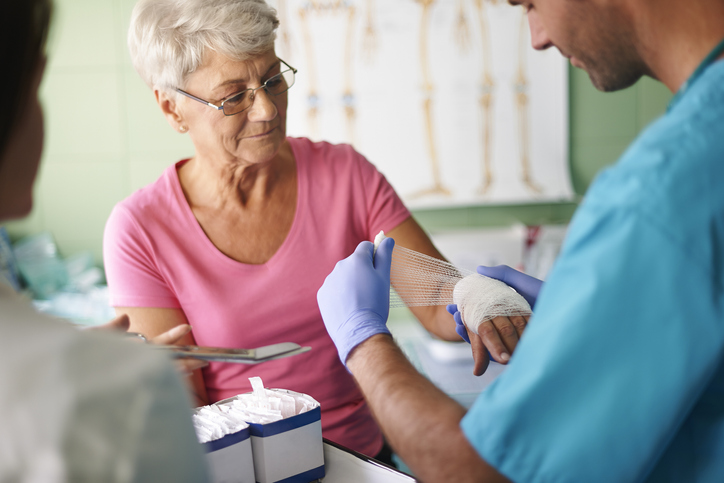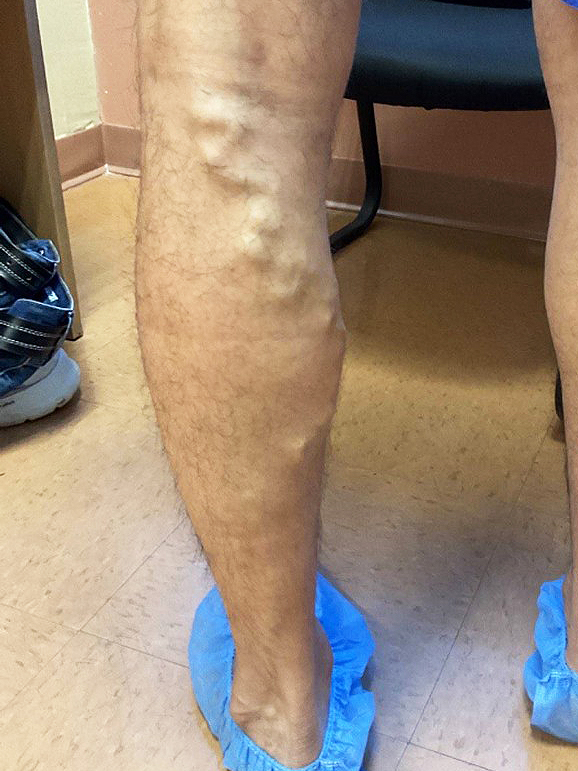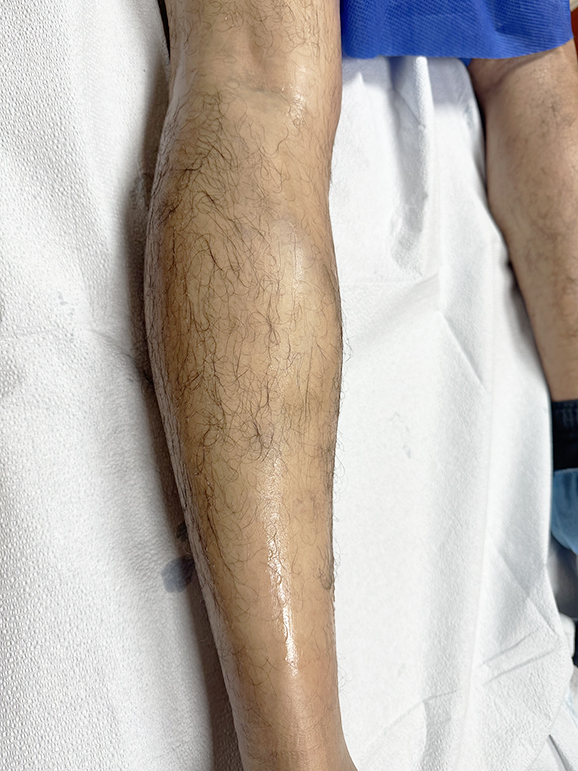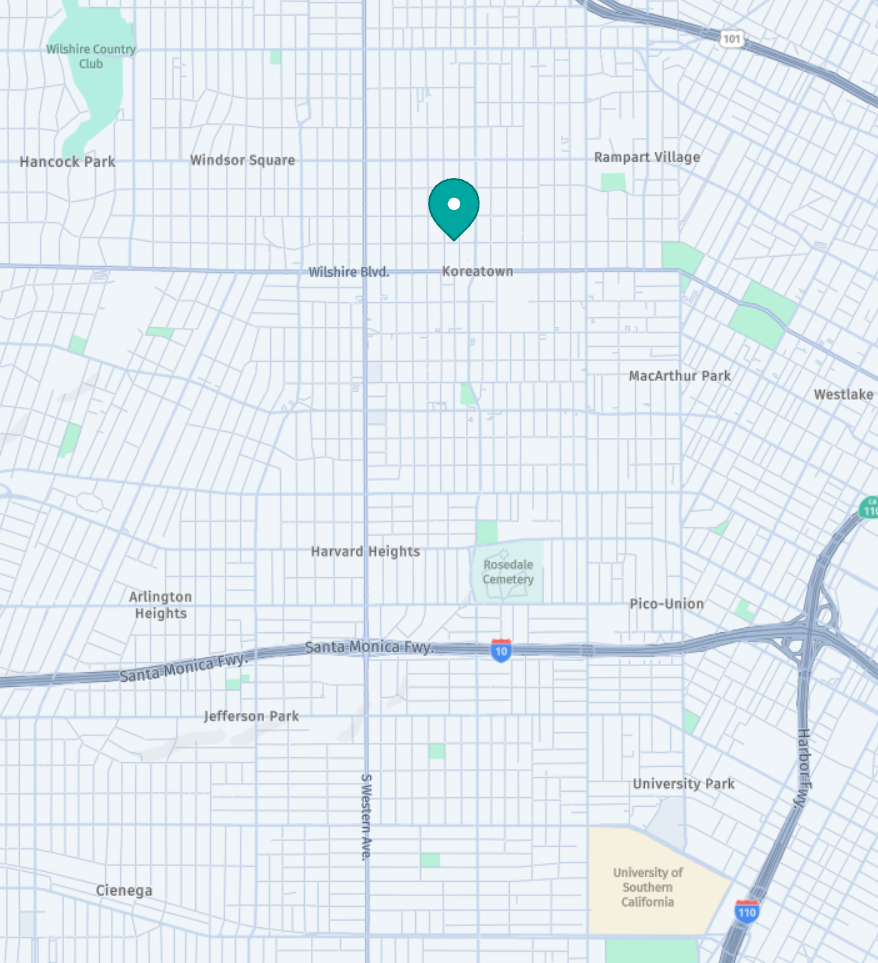Wound Care in Hollywood, CA
Chronic wounds and slow-healing ulcers can affect your mobility, comfort, and overall health, especially when underlying issues like circulation problems or infection are involved. Many patients don’t realize that wounds failing to improve within two to four weeks often need specialized medical care. This page explains the advanced wound-care services available at the Vein & Wound Center of LA so you know what each treatment does and how it supports long-term healing.
Dr. Christopher Kim, a phlebologist who specializes in wound care with a background in general surgery and limb salvage, leads all diagnostic and treatment decisions. He provides comprehensive care for complex wounds at the Koreatown clinic.
Chronic Wounds
Chronic wounds are injuries that do not progress through the normal stages of healing. Circulation problems, infection, diabetes, pressure, and repeated trauma are common contributors. These wounds often show stalled healing, persistent drainage, odor, or tissue breakdown. Managing these conditions requires addressing the underlying cause, improving blood flow, removing damaged tissue, and using advanced therapies when appropriate. Dr. Kim evaluates each case to determine the factors preventing healing and develops a structured plan to improve wound health over time.
Skin Conditions
Some open wounds are not caused by poor circulation, diabetes, or pressure alone but by underlying skin or autoimmune diseases that require proper diagnosis. Conditions such as Pyoderma Gangrenosum, Cutaneous Vasculitis, Bullous Pemphigoid, and lupus-related skin ulcers may mimic common vascular or pressure wounds yet respond differently to treatment.
At our practice in Los Angeles, CA, our approach includes a thorough evaluation of the wound’s appearance, medical history, and risk factors—often followed by a skin biopsy to confirm diagnosis. Accurate diagnosis is critical because applying inappropriate therapies (for example, compression meant for venous ulcers) may delay healing or worsen the condition. Once the underlying skin disorder is identified, treatment may involve collaboration with dermatology or rheumatology, systemic immunosuppressive therapy, and advanced wound-care products.
Cellular Tissue–Based Products (CTPs)
CTPs are advanced biologic materials derived from human, porcine, or bovine sources designed to support cell growth and tissue repair. They are used when a wound fails to respond to standard care. These products provide a scaffold that encourages healthy tissue formation and can improve the healing environment for diabetic foot ulcers, venous ulcers, and complex surgical or traumatic wounds. They are often paired with debridement and proper off-loading or compression for best results.
Debridement
Debridement is the removal of dead, infected, or non-viable tissue that prevents healing. It allows healthy tissue to form and reduces the risk of bacterial overgrowth.
Common methods include:
- Surgical (sharp) debridement
- Enzymatic, autolytic, or mechanical debridement
Debridement is often the first step before applying CTPs, compression, or advanced dressings.
Diagnosis and Wound Evaluation
Wounds that do not heal within several weeks often indicate underlying vascular or metabolic issues. A full wound-care evaluation may include:
- Medical history and physical examination
- Vascular studies to assess circulation
- Wound cultures or lab testing
- Assessment of depth, drainage, tissue type, and infection risk
Diagnosis guides every decision in the treatment plan. Identifying venous insufficiency, arterial disease, neuropathy, infection, or pressure-related injury helps determine the most appropriate therapies and prevent recurrence.
Dressings and Moisture Management
Dressings protect tissue, manage moisture, reduce bacterial load, and support new cell growth.
Types of dressings used include:
- Gauze, hydrocolloid, hydrogel, foam, alginate
- Silver or iodine dressings
- Collagen and composite multilayer dressings
Dressing selection depends on drainage level, tissue type, location, comfort, and insurance coverage. Chronic wound dressings may be eligible for home delivery or support from home-health nurses.
Negative Pressure Wound Therapy
Negative pressure wound therapy (NPWT), sometimes called wound-vac therapy, uses a sealed dressing connected to a pump that applies gentle suction. This helps remove excess fluid, reduce swelling, and encourage granulation tissue. It is used for diabetic foot wounds, pressure injuries, partial amputations, and certain surgical incisions.
NPWT may shorten healing time, improve wound-bed quality, and reduce the burden of dressing changes. It is recommended only when clinically appropriate and typically monitored with weekly follow-up.
Antimicrobial Therapy
When wounds show signs of bacterial colonization or infection, topical or systemic antimicrobial therapy may be recommended.
Common options include:
- Silver or iodine dressings
- Honey-based products
- Mupirocin or other topical antibiotics
- Oral antibiotics guided by culture results
Therapy is used carefully to avoid resistance and is paired with cleansing, debridement, and pressure or edema management.
Why Choose Vein & Wound Center of LA for Wound Care in Los Angeles?
Dr. Christopher Kim combines vein care, wound care, and surgical training to address the full picture of why a wound isn’t healing. Our practice emphasizes diagnostic accuracy, thoughtful follow-up, and solutions that match each patient’s needs.
Patients benefit from:
- A physician-led approach to chronic wounds
- Advanced therapies including NPWT and CTPs
- Vascular assessment when circulation issues are suspected
- A secure Koreatown location with free garage parking
- An emphasis on long-term limb preservation and prevention of recurrence
Frequently Asked Questions
What signs suggest a wound needs medical attention?
A wound that hasn’t improved within two to four weeks, has increasing drainage, odor, redness, warmth, or persistent pain should be evaluated. Research shows that delayed care increases the risk of complications in chronic ulcers. Early assessment helps identify circulation issues, pressure problems, or bacterial factors that may be slowing your healing.
Why do some wounds stop healing on their own?
Healing can stall when blood flow, oxygen, or nutrients cannot reach the tissue. Conditions such as diabetes, vein disease, chronic swelling, skin inflammation, or repeated pressure may disrupt the healing cycle. Many patients in Los Angeles also develop chronic wounds from untreated venous insufficiency, a common contributor to non-healing leg ulcers.
Is every chronic wound infected?
No. Many chronic wounds have bacterial colonization without true infection. Infection is diagnosed by specific symptoms and testing. Treating all wounds as infected can lead to unnecessary antibiotic use. Our practice evaluates each wound carefully to determine whether antimicrobial therapy is appropriate.
How often will I need follow-up visits?
Follow-up depends on the wound’s severity and your overall health. Most patients benefit from weekly monitoring to track changes, adjust dressings, evaluate circulation, and monitor healing. This supports early detection of complications and helps avoid delays in treatment.
Do I need a referral to be seen for wound care?
Most patients do not need a referral unless required by their insurance plan. You can schedule directly with us at the Vein & Wound Center of LA.
Can chronic wounds lead to long-term complications?
Yes. Untreated wounds may lead to deeper tissue injury, impaired mobility, or infection. Studies show that diabetic foot ulcers significantly increase hospitalization risk when not managed early. Comprehensive wound care helps prevent these outcomes through diagnostic testing, pressure relief, and circulation assessment.
Are advanced treatments always necessary?
Not always. Some wounds respond well to structured basic care, including cleaning, moisture control, and pressure reduction. Advanced therapies are recommended when standard care no longer supports improvement. Treatment plans are individualized based on clinical findings and wound behavior.

Restore Your Health and Comfort
If your wound has not improved within two to four weeks, prompt medical evaluation can help you get on the right track. Vein & Wound Center of LA in Koreatown provides comprehensive care for chronic wounds, circulation-related issues, and complex skin concerns. Contact the clinic at (213) 654-8346 to schedule a consultation and begin a structured plan for healing.


